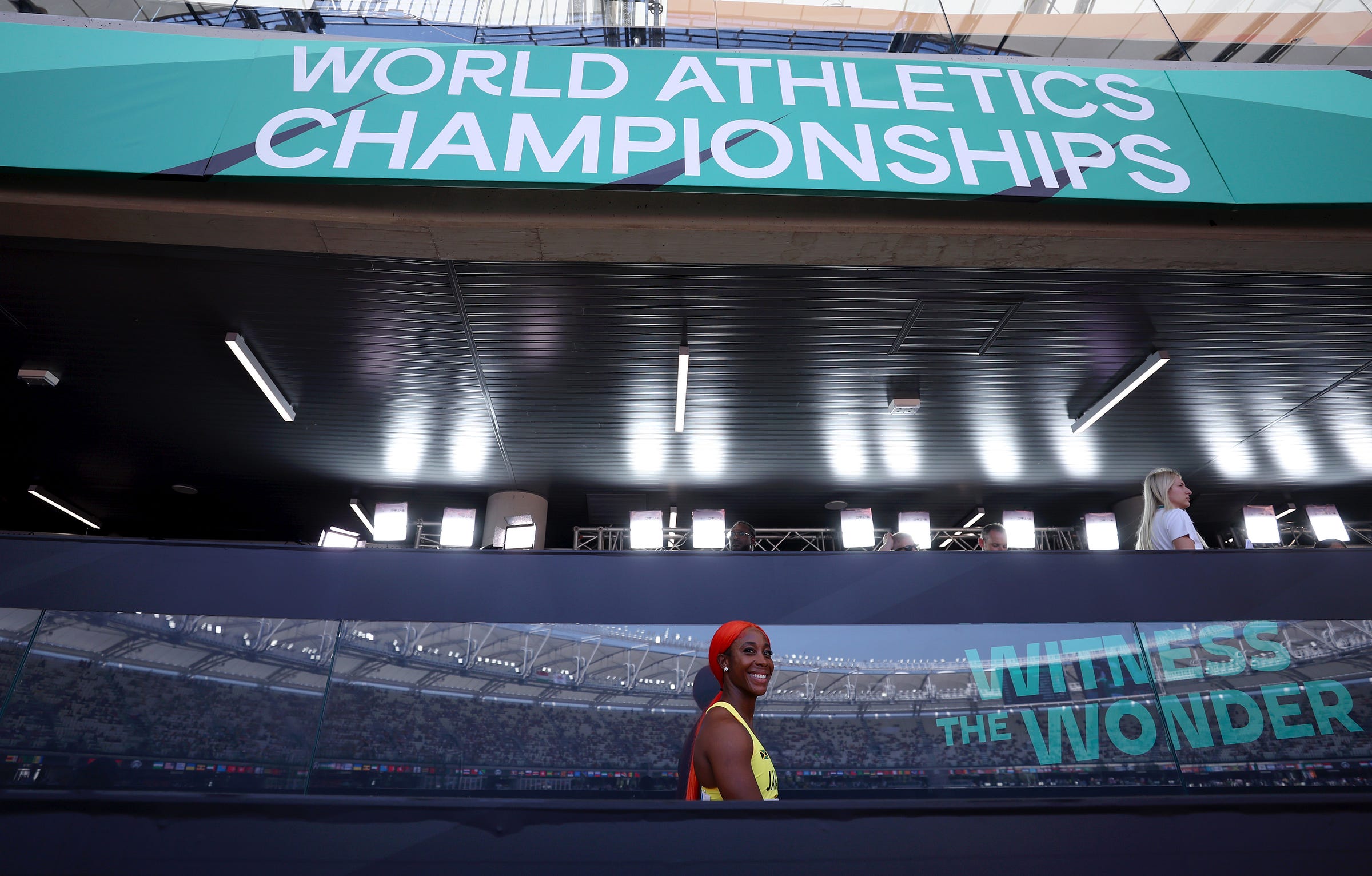Fast Tracks, Shrewd Pacts
Hungary’s nationalist prime minister has seized the international spotlight emanating from the 2023 World Athletic Championships in Budapest to strengthen ties with key political allies.
Amidst the riveting feats of speed, strength and athleticism at the 2023 World Athletics Championships in Budapest, Hungary, a different kind of race is unfolding on the sidelines.
Viktor Orbán, Hungary’s nationalist prime minister, has seized the international spotlight emanating from the prestigious track-and-field competition to advance his diplomatic agenda and strengthen ties with key political allies.
The high-profile meetings, which do not include any leaders from Hungary traditional Western allies, reflect Orbán's strategic push towards political cooperation with autocracies in the Balkans and Central Asia.
On the second day of the World Athletics Championships, which runs between Aug. 19-27, Orbán met with Turkish President Recep Tayyip Erdogan to attend Hungary's founding day celebrations and watch some of the events at the competition. The two world leaders also held a closed-door session, where they discussed approaches to strengthening bilateral relations, as well as a variety of regional and international issues, including security, defence and economic cooperation.
Orbán also held sideline talks with other counterparts, including the Emir of Qatar and the presidents of Azerbaijan, Kyrgyzstan, Uzbekistan, Serbia and Turkmenistan.
In an interview Friday with state radio, Orban described the leaders invited as Hungary's “political friends,” and said the athletics championships would provide a platform for bilateral meetings and talks from around the world, including China.
“If there's a big world event, then the given country invites its friends,” Orbán said Friday, adding that such events are “a more or less covert series of diplomatic meetings.”
In a news conference on Friday, Hungarian Foreign Minister Peter Szijjarto said the topic of most of Orbán's meetings would focus on securing natural gas supplies to Hungary. This was evident from Orbán’s meeting with Erdogan, where the two countries inked a landmark natural gas export deal.
Orbán also secured assurances from Serbian President Aleksandar Vučić during their meeting Sunday that Serbia will provide Hungary with increased shipments of Russian natural gas if Ukraine follows through on ending a gas transit agreement with Russia.
It is worth noting that Hungary gets approximately 80% of its natural gas from Russia, most of which comes through a pipeline in Serbia. Hungary has therefore maintained a close relationship with Russia since the invasion of Ukraine and has taken steps to ensure a steady supply of Russian gas.
Beyond Hungary’s energy concerns, the country’s decision to host a major international sporting event is the latest example of governments utilizing sports to distract from ongoing human rights abuses, as well as to garner international legitimacy.
“This is the biggest sports event Hungary has ever hosted,” said Balázs Fürjes, Secretary of State of the Prime Minister’s Office responsible for Budapest and co-chair of 2023 World Athletics Championships organizing committee. “It is a great opportunity for Hungarian sports; it will give momentum to Hungary’s athletics, inspiration to children, a motivation for healthy lifestyles, and will aid urban development.
“This will put Hungary on the world map,” Fürjes concluded.
Over the past few years, Hungary has witnessed the continued erosion of its democratic institutions under Orbán, leading the European Union to file numerous legal procedures against the government for its treatment of LGBTQ+ peoples, which included placing restrictions on LGBTQ+ content under the guise of protecting children. There are also concerns abut Hungary’s migrant and asylum seekers policies, including reports that border officials had carried out over 90,000 unlawful pushbacks to Serbia between January-August 2022.
Orbán has positioned himself as a champion of supposedly traditional Christian values, which has made him popular with the American right. The Hungarian president received an invitation to the Conservative Political Action Conference (CPAC) in Texas last year, where he gave a speech railing against immigration, globalism and trans rights, describing an ideological “battle for Western civilization.”
“Politics are not enough,” Orbán said in his CPAC speech, which came on the heels of his statement a month prior that that Hungary must not become a “mixed-race” country. “This war is a culture war. We have to revitalize our churches, our families, our universities and our community institutions.”
As Orbán continues to boost his popularity among conservatives, the Hungarian nationalist is relying on sports to boost his country’s image internationally. His government spent $700 on the construction of the National Athletics Center, where the more than 2000 athletes are currently competing in the World Athletics Championship, and more than $600 million on the Puskas Arena, Hungary’s biggest football stadium.
Another Olympic bid may also be in Hungary’s future, according to government officials.
"The Budapest Olympics is the nation’s 100-year dream, and an Olympic nation must never give up on its dreams," Fürjes told insidethegames. “"So, when the time is right, we will definitely consider it.”
Sports Politika is a newsletter about the intersection of sports, power and politics. If you like what you see, upgrade to a paid subscription ( or gift a subscription if you already have your own). We would appreciate if you could also like the post and let us know what you think in the comment section below.





Thank you for this article. As a Hungarian who has been living abroad for a decade, I’m always interested in coverage of my home country.